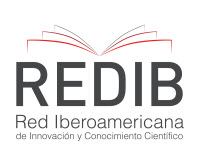O Solar do Unhão e o Sesc Pompeia de Lina Bo Bardi: discutindo o binômio educação e cultura
Resumo
Defendo neste paper que o processo de eduçação significa a apropriação do patrimônio cultural da humanidade por todas as camadas da população e que a cultura de um país é mais do que aquilo passível de ser ensinado nos bancos escolares e nos livros didáticos. Para fundamentar minha concepção sobre as relações entre educação e cultura, recorri ao trabalho realizado pela arquiteta italo-brasileira Lina Bo Bardi, falecida em 1992, que entendeu perfeitamente o significado desses dois conceitos, aplicando-os à população brasileira. Por meio das análises da mudança de uso no Solar do Unhão como museu e Universidade Popular, em Salvador, e da instalação de um projeto pedagógico no Centro de Lazer e Esportes no Sesc da Fábrica da Pompéia, em São Paulo, em meio ao oferecimento de cursos e atividades culturais, pude não só identificar como valorizar a cultura diversificada emanada do povo e a educação não convencional voltada para esse mesmo povo como algo que faz sentido no processo de formação político-cultural de uma nação.
Palavras-chaves: educação; práticas culturais; Lina Bo Bardi.
Downloads
Downloads
Publicado
Edição
Seção
Licença
Autores que publicam nesta revista concordam com os seguintes termos da licença Creative Commons, adotada a partir da ArtCultura, v. 21, n. 39 (jul.-dez. 2019).
CC BY-NC-ND 4.0: o artigo pode ser copiado e redistribuído em qualquer suporte ou formato. Os créditos devem ser dados ao autor original e mudanças no texto devem ser indicadas. O artigo não pode ser usado para fins comerciais. Caso o artigo seja remixado, transformado ou algo novo for criado a partir dele, ele não pode ser distribuído.
Autores têm autorização para assumir contratos adicionais separadamente, para distribuição não exclusiva da versão do trabalho publicada nesta revista (ex.: publicar em repositório institucional ou como capítulo de livro), com reconhecimento de autoria e publicação inicial nesta revista.












